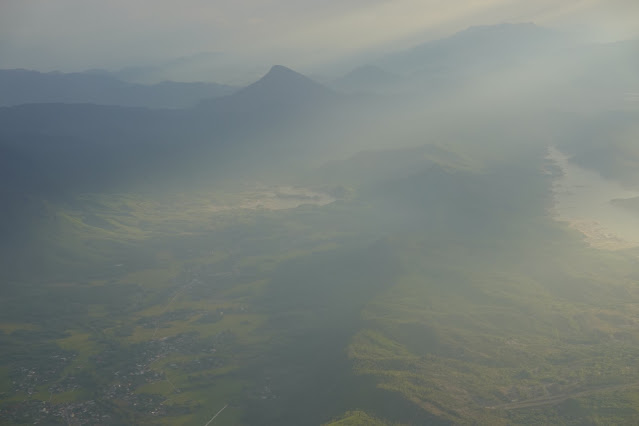Pictures copyright by : Gan Yung Chyan, KUCINTA SETIA
Sunday, June 30, 2024
Friday, June 28, 2024
Wednesday, June 26, 2024
Return transfer costs and room deposit of Muong Thanh Luxury Song Han Hotel, Danang
Report, photo copyright by : Gan Yung Chyan, KUCINTA SETIA
Muong Thanh Luxury Song Han Hotel's return transfer services are not free. The vehicles available for transfers are 7-seated and 16-seated vans.
One-way transfer for a 7-seated van costs VND160,000 while a one-way transfer for a 16-seated van costs VND320,000.
A surface transfer surcharge of VND100,000 is imposed on a passenger who arrives in Danang on flights between 10 pm and 6 am the next day.
Passengers that check in at Muong Thanh Luxury Song Han Hotel have to pay a refundable room deposit of VND500,000.
Therefore, prepare a budget of VND1,000,000 for arrival and check-in at the hotel.
Official web-site of Muong Thanh Luxury Song Han Hotel : https://luxurysonghan.muongthanh.com
Tuesday, June 25, 2024
Hotel Review : Muong Thanh Luxury Song Han Hotel, Danang
Review, photographs copyright by : Gan Yung Chyan, KUCINTA SETIA
I did not expect this hotel to be a plane-spotting hotel with huge reception area but the room where I stayed in has a beautiful and marvellous view of Danang International Airport afar from the hotel, a skyscraper of 23 floors.
In the morning, it is heartwarming to me to see aircraft taking off for the sky on the background of runway and high mountain from the spacious room and it is the remarkable point of my vacation.
Scenic beauty aside, the complimentary breakfast has plentiful selections of Vietnamese food and fruits to choose from, for example, brown bread, Vietnamese plums and scores of different salads and the hotel is where Singapore Airlines tickeing office is located, providing convenience to tourists.
However, there is miscommunication when I checked out.
The hotel staff that oversaw the driver that picked me up showed me to a taxi driver instead. He claimed he was waiting for me. I travelled in that taxi to Danang airport. At the airport, I did not expect the driver to say I had not paid for the transfer. I insisted I did and I told him to call the hotel reception. The receptionist was kind enough to admit miscommunication. She said I entered the wrong car and I did not need to pay further. She said she would compensate the driver. That was kind of the receptionist.
I hope the outbound transfer arrangement can be done better by telling the guest the car number and driver's name as I thought there was change in driver after I woke up late due to the lack of wake-up call service as expected.
Address of Muong Thanh Luxury Song Han Hotel : Quan, 115 Nguyen Van Linh, Vinh Trung, Quan Hai Chau, Da Nang, Vietnam. Tel: +84 236 2223344
Subscribe to:
Comments (Atom)
Prelude to a regime change in Iran : Echoes for democratic transition
Direct translation Prelude to a regime change in Iran! Opposition hardens: Abolishing the constitution, democratic transition? Reporter : W...

-
Report by : Gan Yung Chyan, KUCINTA SETIA Photo copyright by : Khov Meng Heng According to Cambodian and Chinese media, Cambodia's n...
-
Report, photo copyright by : Gan Yung Chyan, KUCINTA SETIA The above photo was shot in front of the viewing area in Changi Airport Terminal...





























































